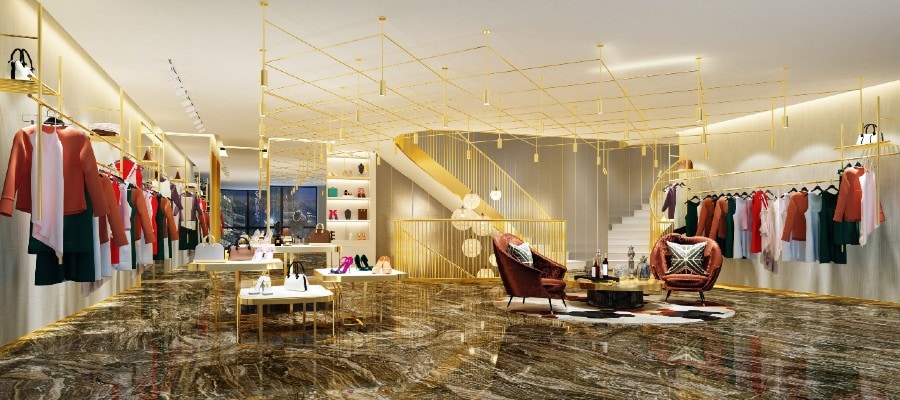Retail & Distribution
U.S. In the luxury sector, stores are the key to customer loyalty
24 oktober 2019

In the premium retail universe, many European retailers would like to enter the U.S. market (e.g., Compagnie de Provence and the Portuguese brand Parfois) or continue to expand there (e.g., Lacoste, Richemont, Sephora, Chanel, Madura and Vilebrequin). However, the U.S. market is very mature, driven by sophisticated marketing and extremely demanding customers.
“In the United States, customers know exactly what they want,”
Alain Bernard – Chairman and CEO of Richemont Group, North America, in an interview in Global Retail News.
More than other countries, the U.S. requires retailers to provide an increasingly seamless shopping experience in order to attract customers into stores.
Analysis.
A unique and seamless shopping experience
From New York to Los Angeles, luxury retailers are applying all their creativity to improve the customer experience, which is expected to be increasingly intensive and “instagrammable.” In January 2019 in the Manhattan neighborhood of Soho, Chanel opened a store called Atelier Beauté (Beauty Workshop), a veritable amusement park for fans of beauty products. As soon as they enter the store, customers are invited to place their personal belongings in a locker. They then open an online wish list so they can click and save their favorite products. The range of services is extensive, with everything to satisfy the customer: makeup and skincare “artists-in-residence” on hand for consultations, designated spaces for experimentation, and minimalist product displays worthy of Marie Kondo. The icing on the cake? A highly photogenic selfie space, including a content creation room which provides numerous possibilities and Instagram-approved lighting. In the fashion sector, Gucci has also chosen Soho as the location of its flagship Gucci Wooster, which is designed as a cultural space. In addition to products from the Italian brand, the store offers a screening room, a café and a bookshop. For Gucci, seamlessness means speed. The retailer is able to deliver in 90 minutes to customers in New York, Los Angeles and Miami via its partnership with Farfetch, a platform that sells products from 3,200 brands and delivers to 190 countries.
The all-important shopping experience in the U.S. has now entered the household goods sector. For the ultra-exclusive Restoration Hardware, which presents itself not as a retailer but as a curator in the luxury lifestyle market, hospitality is a key concept at the new five-story location opened at the end of 2018 in Manhattan’s Meatpacking District. With a rooftop bar and restaurant, the terrace is designed as an outdoor garden with a view onto Manhattan and the Hudson river. The 8,300 m² store also has rooms for private events. In 2019, the company will open its first RH Guest House, a boutique hotel located across the street from its flagship, in the same historic New York neighborhood. At Pirch (luxury products for the kitchen, bathroom, etc.), customers are able to test products before taking them home. At Pirch’s California showrooms, customers can wash their clothes in washing machines on display, or bring their swimsuits to try out the store’s spa equipped with $1,000 showerheads. Mattress specialist Casper has opened a Dreamery space in its incredible New York showroom, where for $25 customers can take a 45-minute nap on a mattress in a cozy, private wooden cabin. A unique and unforgettable experience.
In terms of seamlessness, the standard is very high in the U.S., where retailers compete to develop increasingly convenient shopping experiences, from payment and customer loyalty all the way to delivery. Upscale department store Neiman Marcus is using digital technology to achieve these things. Its internet site records customer sizes on the basis of previous visits. Personalized e-mails are sent when a product previously viewed online becomes available in-store. The website also offers a visual search engine. Customers can photograph a product they see in the street or in a store, and the application suggests identical products.
Personalization and services
In the U.S. and elsewhere, customer data is vital, and has totally changed store strategies.
“When you are shopping online, the experience is completely personalized; what you see isn’t the same as what someone else sees. In a physical store, on the other hand, you are asked for contact information only when you pay.”
Julie El Ghouzzi – Head of the Centre du Luxe et de la Création
Luxury retailers are now aiming to provide qualitative, personalized assistance for their customers by means of “clienteling” apps. After a customer identifies him- or herself to a sales advisor, the apps show the customer’s browsing history, previous purchases, delivery preferences (e.g., click & collect near an office or hotel), etc. Cegid has equipped American stores Furla, Havaianas, Vilebrequin, Ba&sh and L’Occitane, including its New York flagship.
Search for meaning
In addition, upscale retail has been transformed by the arrival of many small, independent brands. These young companies have clearly defined values, and they implement new strategies to enhance customer relations. What is the key? To compensate for their low profile, these brands make strong commitments tied to generous return policies, thereby lowering the risk for customers. For example, Casper customers have 100 days to test a mattress at home, all for free. The mattress can be returned (via UPS) if the customer is not satisfied. In the beauty sector, the focus is on fun, authentic experiences at numerous young brands such as Nyx, La Neige, Origins, Sunday Riley and Laura Mercier.
“They sell instagrammable products and colorful packs that customers enjoy taking out of their handbag. With their lower prices, these young companies have disrupted large luxury groups, which are finding it increasingly difficult to distinguish themselves. The trend is for major players to buy the small independent brands they are unable to create.”
Audrey Delort-Laval – Founder of sun-cream brand Mimitika
This view is shared by the Richemont Group CEO for North America. “In the coming years, no brand will be able to survive without a more sincere approach, and without environmental and societal commitments,” added Alain Bernard. “Today it is impossible to build a retail strategy without highlighting what the company does in terms of product origin, traceability, creation and employer commitments.”

Download our eBook:
Luxury Goods: Focus on Customer Service, Retail Experiences and International Challenges


